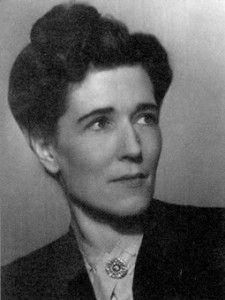Georgette Heyer: What Makes An Incomparable?
 Judith Lown is the author of A Match for Lady Constance (Avalon) and A Sensible Lady: A Traditional Regency Romance (eFrog Press). She is hard at work on a sequel but still makes time to blog. Today she pays tribute to Georgette Heyer during the week of her birthday. Note that A Sensible Lady: A Traditional Regency Romance will be free to download from Amazon on August 16, Heyer’s birthday.
Judith Lown is the author of A Match for Lady Constance (Avalon) and A Sensible Lady: A Traditional Regency Romance (eFrog Press). She is hard at work on a sequel but still makes time to blog. Today she pays tribute to Georgette Heyer during the week of her birthday. Note that A Sensible Lady: A Traditional Regency Romance will be free to download from Amazon on August 16, Heyer’s birthday.
Georgette Heyer: What Makes An Incomparable?
 Georgette Heyer might not have been the first writer to use Incomparable to designate a lady whose beauty is sufficiently compelling to thaw the hearts of icy Lords, turn erstwhile warriors into babysitters, or, most importantly, transform notorious rakes into faithful, monogamous husbands. However, she can be credited with establishing the Incomparable as a fixture of the Regency Romance, just as she established the Regency as a staple among romance novels.
Georgette Heyer might not have been the first writer to use Incomparable to designate a lady whose beauty is sufficiently compelling to thaw the hearts of icy Lords, turn erstwhile warriors into babysitters, or, most importantly, transform notorious rakes into faithful, monogamous husbands. However, she can be credited with establishing the Incomparable as a fixture of the Regency Romance, just as she established the Regency as a staple among romance novels.
But of all the Incomparables brought to life by Heyer, none is as deserving of the title as she is, herself. No. She was not a great beauty. No. She did not have a dashing career as the most sought-after debutante. She did not even participate in a London Season. Indeed, before she was of an age to do so, she was writing her first novel, The Black Moth, in order to entertain her seriously ill brother. All the same, she well earns the title Incomparable.
Founder of a Literary Genre
Who else founded a literary genre? Edgar Allen Poe, Mary Shelley, H.G. Wells, Arthur Conan Doyle, and Louis L’Amour? The list is short.
What other writer whose career extended from 1921 to 1974 has her own Amazon page with audio, paperback and e-editions available—all with 4+ star ratings?
What is it about Heyer’s novels that set them apart from so many other historical novels that have their time of popularity and then fade? The answer, I believe, is that Georgette Heyer, while wholly absorbed in the mores and fashions of a specific time in history, had a keen eye for ageless human foibles and eternal human values.
Heyer’s Era
Think about what was happening in England and the world during Heyer’s writing career. It began just after World War I had concluded, which left behind widows, orphans and single young women whose chances for marriage and family had died in the trenches of Normandy. The Ottoman Empire was collapsing. Armenians were the victims of genocide. Maimed and shell-shocked veterans were struggling to find their bearings in civilian society. Then came the worldwide Depression. Fascism, Nazism, and Communism gained adherents.
World War II consumed the ‘40’s. Heyer’s beloved London barely survived the Blitz.
And when the war ended Britain withdrew from its Empire and experienced the longest period of food rationing of any country following the war.
Then there was the Cold War and the specter of a nuclear holocaust.
When Heyer died in 1974, long held social customs were being abandoned, and it was not at all clear that The West would win the Cold War.
Heyer’s Genre
During all those years fraught with conflict and danger, Heyer wrote about young ladies doing what they could to forge a life for themselves—preferably by making an advantageous marriage—in a hypocritical, arbitrary, and, essentially, unjust society, and, about the gentlemen from among whom they might choose to navigate those treacherous societal shoals.
In Heyer’s novels, the ladies and gentlemen dancing beneath the multi-candled chandeliers, driving on high-perched phaetons, or simply parading in Hyde Park, wearing the latest stare of fashion, are human beings who make choices of expediency or honor; think primarily of themselves or others; whine and complain about their lot or play the hand they are dealt with all the wit and grace they can muster.
New readers pick up a Heyer novel to lose themselves in the antics of an over-privileged elite of a bygone era. But Heyer never confuses froth with substance. She constructs challenges for her characters’ courage, fortitude and honor, and lets them learn by the consequences of their decisions and behavior—sometimes with a gentle smile, sometimes with ridicule.
Happy Birthday to the Incomparable Georgette
Friday is the 111th anniversary of Georgette Heyer’s birth. The world into which she was born is as distant from our world as the Regency period was from hers. But she never permitted current events and preoccupations to interfere with her art, which was the interplay of the most ephemeral of worlds with the most unchanging.
That makes her an Incomparable.
Please Share
If you, too, are a Geogette Heyer fan, share why you love her books. If not, nominate another author who deserves the title Incomparable.
To celebrate the birthday of Geogette Heyer, my novel A Sensible Lady: A Traditional Regency Romance (inspired by Heyer) will be free on Amazon on Friday, August 16. Enjoy!
August 17th, 2013 at 7:44 pm
Georgette Heyer is a life-long favorite of mine. Thank you so much for this fascinating tribute! Her books do have an eternal quality while being a wonderful healing escape. They achieve the highest mission of fiction (according to me)–they please and delight and reaffirm the goodness of life.